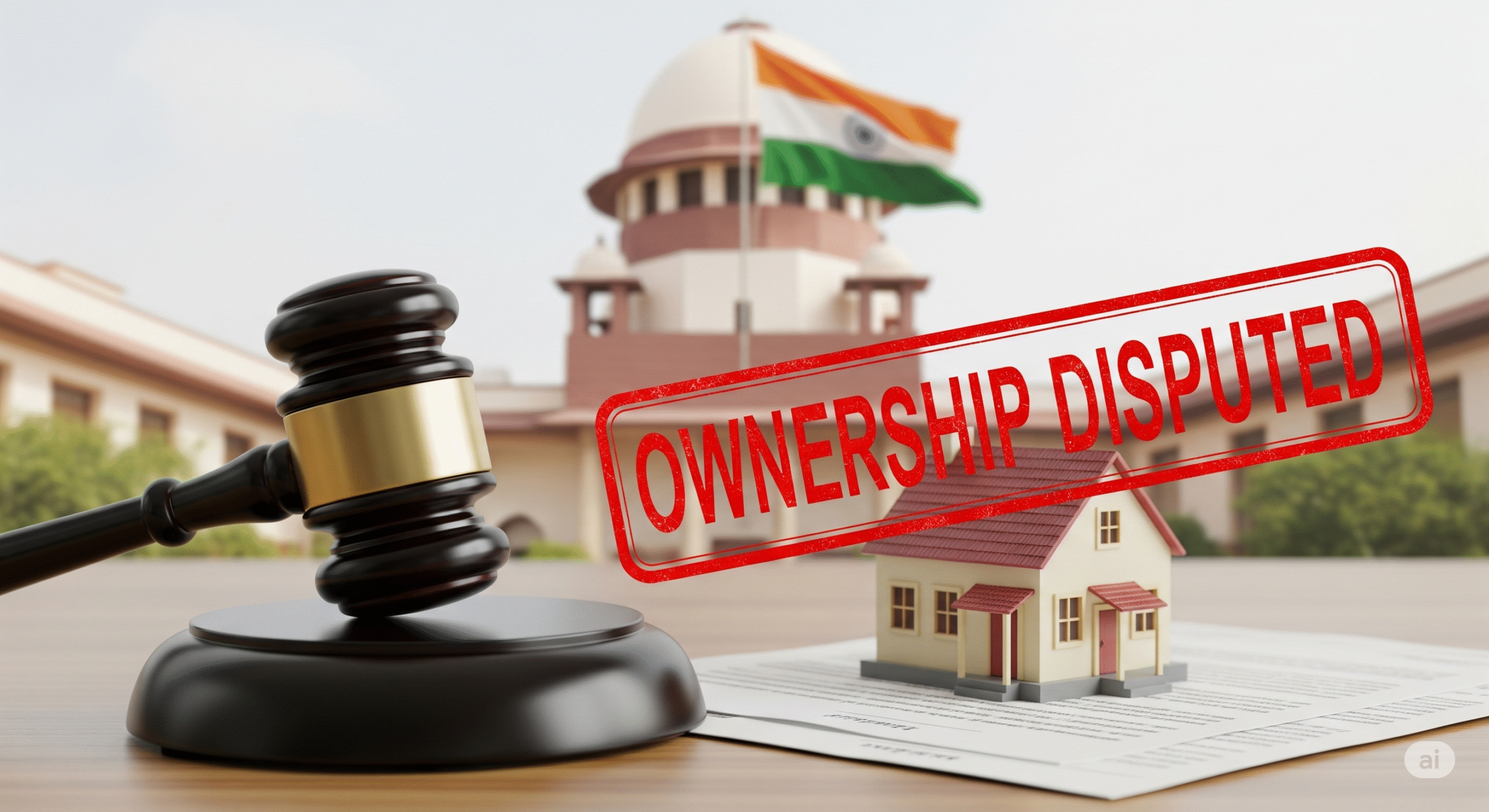Property ownership in India is a matter of paramount concern for all Indians who buy, sell, or inherit immovable property. India’s Supreme Court resolved a critical issue in a milestone judgement in June 2025: being in possession of a registered sale deed does not always make you the legal owner of property. This ruling is a milestone in realising how legal ownership arises and what measures must be taken to obtain it.
Property Ownership in India: What is registration all about?
A registered sale deed is normally taken as the final proof of ownership. It is registered under the sub-registrar’s office and indicates that a property transaction has occurred. But, according to the Supreme Court, registration is merely procedural proof of transfer, not substantive proof of ownership.
It means:
The sale has occurred, but…
- It isn’t a guarantee that the vendor had a legal right to sell
- It isn’t a guarantee the property is free from prior claims or litigations
- It doesn’t automatically transfer title or legal ownership
Property ownership in India: What is legal title?
Title, in law, refers to an absolute legal ownership of property. To have a valid title, one must prove:
- A valid unbroken chain of ownership
- That the seller had actual legal rights
- No third party has adverse claims
- Supporting documents like mutation, tax bills, and encumbrance certificates
- The property is not under litigation or encumbrance
Without these, even a registered deed can be challenged legally.
Property ownership in India: Example of ownership dispute
Let us understand this with an example:
Person A prepares a fake power of Attorney and sells land to Person B.
Person B becomes owner of property and gets possession.
The real owner, Person C, files a court case upon discovering the fraud.
According to the June 2025 judgment, Person B has no good title, although registered. The owner in title (Person C) will recover possession, and the transaction to B is nugatory (void).
Why this ruling on property ownership in India matters
This Supreme Court ruling is an alert sign for home buyers, banks, investors, and builders:
The majority of people think registration denotes ownership. That is not the case, as this ruling proves.
Criminal transactions can keep on being registered with full checks omitted.
Homebuyers must undertake more in-depth due diligence in order to avoid expensive litigation.
Indian property ownership: What homebuyers must do now
1. Title Verification
Homebuyers should check the last 30 years of ownership to ensure an unbroken chain of title.
2.Checklist of Documents
Ensure the following are prepared and legally in order:
a) Sale Deeds (past and present)
b) Mutation Records
c) Property Tax Receipts
d) Encumbrance Certificate (EC)
e) Layout/Plan Approvals
f) Power of Attorney (if any)
3. Legal Due Diligence
Hiring a real estate lawyer can be a savior for the buyer from massive risks. Professional scrutiny of all property documents is the solution.
Impact on banks and financial institutions
Banks and NBFCs cannot rely anymore on registered deeds alone to disburse loans. They must:
A. Perform a full title check
B. Check litigation status
C. Analyze chain of ownership
D. Title risk may result in loans being denied.
What sellers have to make sure
Sellers need to:
A. Have mutation and tax records current
B. Have a clean chain of title
C. Reveal all ownership information honestly
D. No clear records can delay or prevent a sale.
Conclusion: Legal registration is not legal title
The Supreme Court has made it clear: registration of property is not possession of property. Title is to be determined by clear, true, and continuous documents. This ruling emphasizes the need for painstaking due diligence and legal certainty in all property transactions in India.
Final Advice
- Never rely on registration alone
- Always verify ownership history
- Legal aid to use for title searches
- Understand that title = ownership, not just possession or documents








